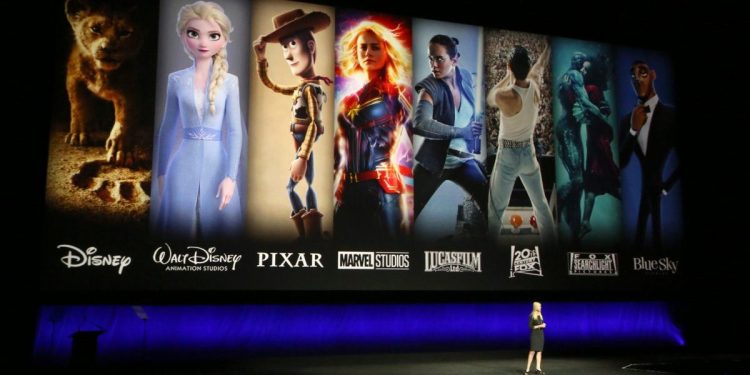Video streaming services that seemed to be entering a golden age just a few weeks ago are now facing pressure from European governments worried about the surge of internet traffic from coronavirus quarantines.
France is on the frontline in this battle, following the decision to impose mandatory confinement starting March 17. With schools turning to distance learning to keep students on track, adults required to work at home, and friends staying connected via Zoom and Skype, the internet infrastructure is groaning under massive demand.
DE-CIX, a global internet exchange company based in Frankfurt, Germany, reported that at its main network node it has seen average data traffic leap more than 10% in recent weeks, including reaching a new all-time peak of 9.1 terabits per second data throughput. The uses driving that surge include a 50% increase in video-conferencing traffic and a 25% increase in cloud gaming and social media use.
While that’s just a snapshot from Frankfurt, systems across Europe are straining under the same pressure. The situation has pushed Thierry Breton, the European Commissioner for Internal Market and Services, to ask streaming service providers to help lighten the load.
June 5th: The AI Audit in NYC
Join us next week in NYC to engage with top executive leaders, delving into strategies for auditing AI models to ensure fairness, optimal performance, and ethical compliance across diverse organizations. Secure your attendance for this exclusive invite-only event.
Important phone conversation with @ReedHastings, CEO of @Netflix
To beat #COVID19, we #StayAtHome
Teleworking & streaming help a lot but infrastructures might be in strain.
To secure Internet access for all, let’s #SwitchToStandard definition when HD is not necessary.
— Thierry Breton (@ThierryBreton) March 18, 2020
Netflix subsequently announced that it would lower its streaming resolution for 30 days across Europe. “We estimate that this will reduce Netflix traffic on European networks by around 25% while also ensuring a good quality service for our members,” the company said in a statement sent to journalists.
YouTube also agreed to reduce its resolution after Breton made the request to Alphabet CEO Sundar Pichai. “We are making a commitment to temporarily switch all traffic in the EU to standard definition by default,” the company said in a statement.
I warmly ?? the initiative that #Google takes to preserve the smooth functioning of the Internet during the #COVID19 crisis by having #YouTube switch all ?? traffic to SD by default. @sundarpichai and @SusanWojcicki demonstrate strong responsibility.https://t.co/jMNhFFpsxa
— Thierry Breton (@ThierryBreton) March 20, 2020
Breton has reportedly requested that Disney+ delay its planned March 24 launch in several European countries, including the U.K. and France. Disney already canceled its planned European launch event earlier this month.
So far, Disney has not announced a delay. VentureBeat has reached out to the company for comment and will update this story if we hear back.
Update March 23 at 7 a.m. Pacific: Disney announced over the weekend that it would delay the launch of its streaming service in France until April 7. The planned launch will continue on March 24 in other European countries, but the company will reduce the streaming resolution.
In addition, Amazon Prime will also reduce its bitrate for streaming, as did Facebook and Instagram.

